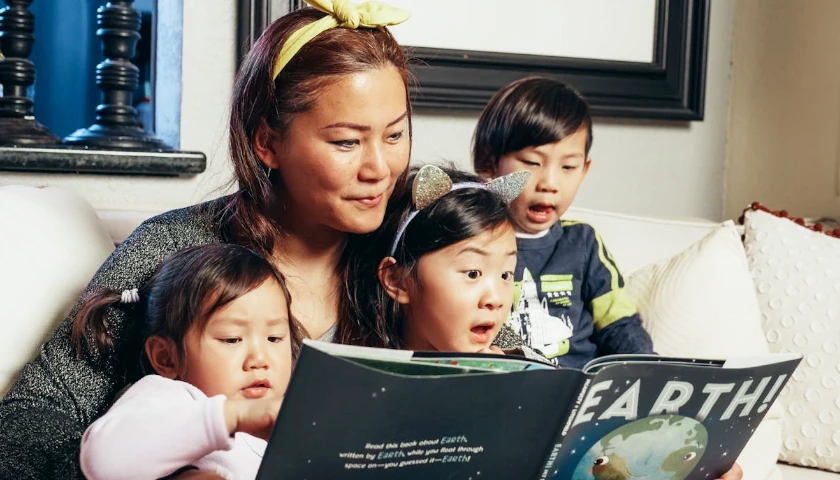by Kurt Mahlburg
Adolescents who have “very conservative” parents are 16 to 17 percent more likely to have good or excellent mental health compared to teenagers with liberal parents, according to new research by Gallup.
The fascinating finding was made in June 2023 and features in a comprehensive report published last month by the independent, non-partisan Institute for Family Studies (IFS).
“Only 55% of adolescents of liberal parents reported good or excellent mental health compared to 77% of those with conservative or very conservative parents,” the IFS report explains.
The report, authored by Gallup economist and Brookings Institute senior fellow Jonathan Rothwell, concludes that conservative and very conservative parents were the “most likely to adopt the parenting practices associated with adolescent mental health.”
In describing those practices, Rothwell spelt out that “conservative parents enjoy higher quality relationships with their children, characterized by fewer arguments, more warmth, and a stronger bond, according to both parent and child reporting.”
“This relationship between conservativism and parenting remains significant even after controlling for an extensive list of parental demographic and socio-economic measures,” he explains, confirming that the study’s outcomes were consistent regardless of race, ethnicity, household income, education or the sex of the parent.
The recent Gallup finding, noted even by Fox News, pairs well with longstanding research showing that people who identify as politically liberal report lower levels of happiness and psychological well-being than conservatives: the so-called “well-being gap.”
Intended or not, the IFS report effectively flips sweeping secular narratives about politics and parenting on their head.
While popular culture commonly portrays the discipline of conservative parents as repressive and even harmful, the data shows it is in fact a strong predictive factor of excellent mental health for teenagers.
But it goes deeper.
In the face of a secular paradigm that decries any boundary as depriving young people of freedom, the data show that discipline in fact results in youth who are much freer and significantly less encumbered by the high rates of depression and anxiety weighing down their peers.
Challenging the notion that conservative parents are strict but unloving, the IFS report uncovered discipline and affectionate warmth as two sides of the same conservative-parenting coin.
In the report, Rothwell also noted the important role that parents’ attitudes towards marriage and their spouses played in an adolescent’s mental health.
Best parenting practices were most commonly found among parents who reported having a strong relationship with their spouse. And adults who have a high view of the institution of marriage, a positive view of their own marriage, and optimism about their child’s future marriage prospects were “significantly more likely to employ responsive, disciplined parenting practices compared to parents who do not hold these views.”
So much for the idea, so commonly bandied about today, that marriage is an outdated institution or a ball-and-chain around one’s ankle.
Perhaps the most optimistic finding in the report is that adolescents’ mental health is not pre-determined but malleable—and very much within the purview of parents.
Rothwell explains that while one of the tasks of the Centers for Disease Control (CDC) is to document adolescent mental health problems and identify the most effective ways to prevent them, the agency’s “summary pages and recommendations on youth mental health … almost completely ignore the most important known determinant of youth mental health: parent-child relationships.” Instead, the CDC urges parents to seek out mental health experts for assistance in dealing with teen depression and related problems.
Speaking with Fox News, Rothwell called this situation “very disappointing” and lacking a scientific foundation.
“It’s kind of easier to tell parents that if your teen is struggling, it’s not your fault, it’s not anything that you’re doing, it’s probably just something in their genes,” he said.
In reality, notes Rothwell, “Teenage biology hasn’t changed but depressive symptoms have.”
If the popular narrative gets so much wrong about parenting and politics, then perhaps the time-tested path of love and discipline should be returned to its rightful place in homes across America.
And if the power over children’s mental wellbeing rests with parenting, then surely there is hope for the nation’s youth—if parents are up to the task.
– – –
Kurt Mahlburg is an emerging Australian voice on culture and the Christian faith. He has a passion for both the philosophical and the personal, drawing on his background as a graduate architect, a primary school teacher, a missionary, and a young adults pastor. Since 2018, Kurt has been the Research and Features Editor at the Canberra Declaration. He is also a freelance writer and a regular contributor at Mercator, the Spectator Australia, Caldron Pool, and Intellectual Takeout. He is married to Angie, who hails from Milwaukee, Wisconsin.





